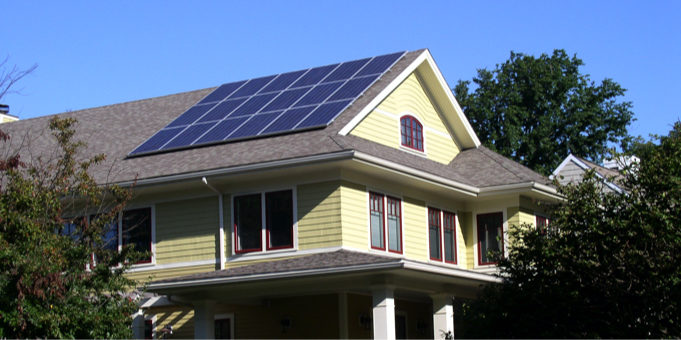It’s tax time! Since you’ve been engaged with Green Energy Consumers on clean energy upgrades like solar, electric cars, and heat pumps, we wanted to share the basics about claiming federal clean energy tax credits for 2023.
Electric Vehicles
Form 8936, Qualified Plug-In Electric Drive Motor Vehicle Credit
If you purchased an electric vehicle in 2023, remember that you may qualify for a federal tax credit of up to $7,500!
Here are the steps to take to claim the credit:
- Visit fueleconomy.gov, select the appropriate option in the “delivery date” drop-down menu, and review whether the vehicle you purchased qualifies for a federal tax credit.
- If yes, fill out form 8936 and file with your taxes. You can find the form and instructions here.
If you didn’t get an EV in 2023 but plan to in 2024 (whether new or used), please note the rules and process have changed! You can get the latest at our blog.
Solar, Heat Pumps, & Energy Efficiency
Form 5695, Residential Energy Credits
For qualifying solar, battery storage, heat pumps, and even energy efficiency upgrades, you will use Form 5695.
Solar
You’ll find Solar & (new!!) Battery Storage on Part I (Residential Clean Energy Credit) of Form 5695. You can receive a tax credit for up to 30% of the cost of your installation. If you don’t have enough tax liability, you can even carry it forward to future years to reclaim the full 30%!
This blog from our partners at EnergySage thoroughly covers the credit for solar installations. Here’s a snippet that illustrates carrying the credit forward:
“Let’s say you spend $25,000 to install a solar system on your home in 2023, which means you are eligible for a $7,500 federal solar tax credit. If your federal tax liability for 2023 is only $5,000, you will owe no federal taxes that year, and in 2024, you’ll reduce your tax liability by $2,500.”
Heat Pumps
You’ll find Heat Pumps in Part II (Energy Efficient Home Improvement Credit) of Form 5695.
If you installed a heat pump in 2023 in your primary residence, you may qualify for a federal tax credit of 30% of the cost, after any state incentives are deducted, up to $2,000. Fox example, if your heat pump cost $10,000, and you received a rebate of $1,000, 30% of the remaining $9,000 would be $2,700, so you could claim the full $2,000 rebate.
As always, you should seek help from a qualified tax professional to determine your eligibility for tax credits. We appreciate your commitment to a zero-carbon world and hope this blog has been helpful to you. Good luck!
The post was written by Erin Taylor and originally published on the Green Energy Consumers Alliance website on March 12, 2024. Copyright © 2023, Green Energy Consumers Alliance, Inc.



Recently on Twitter